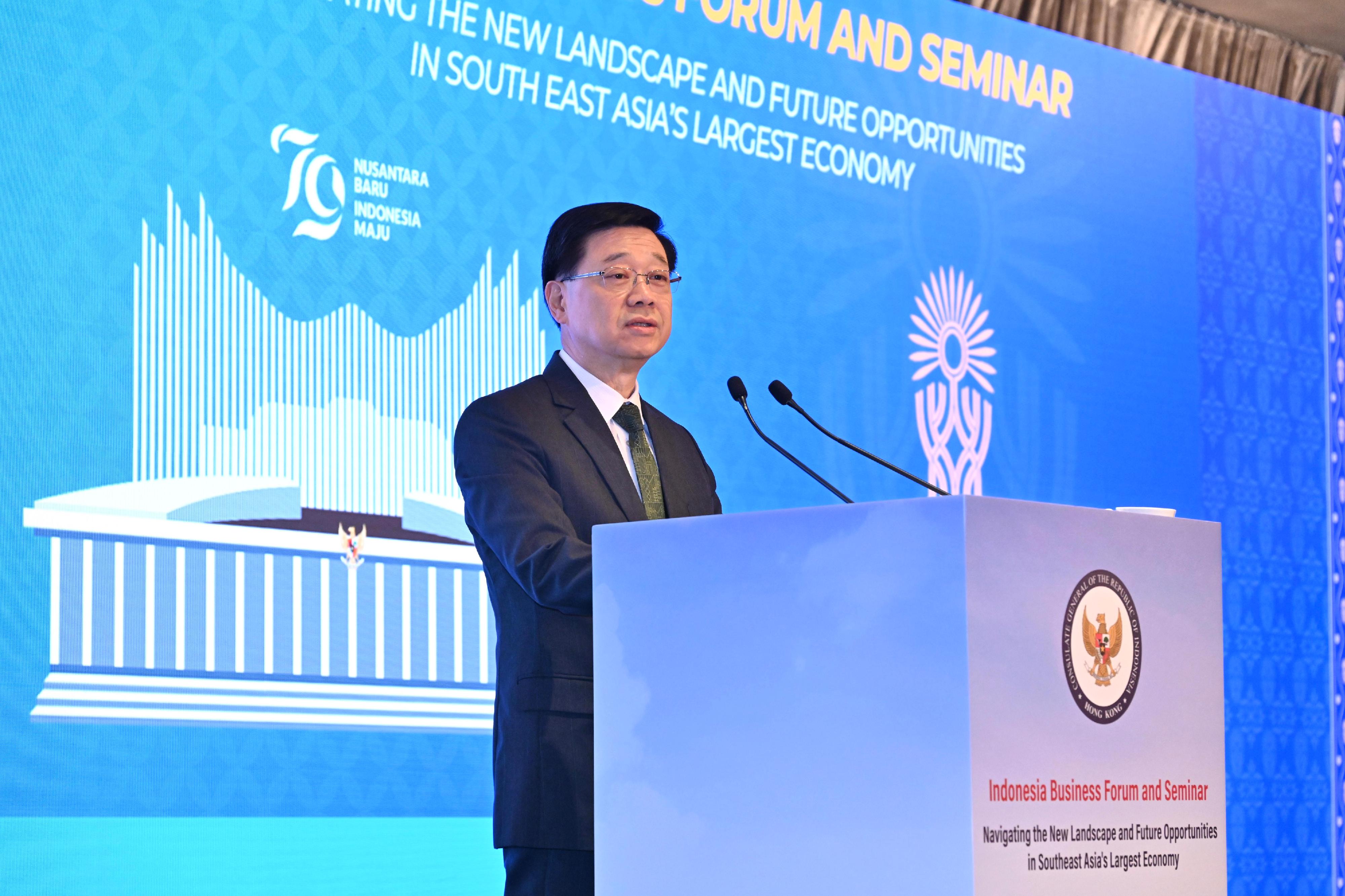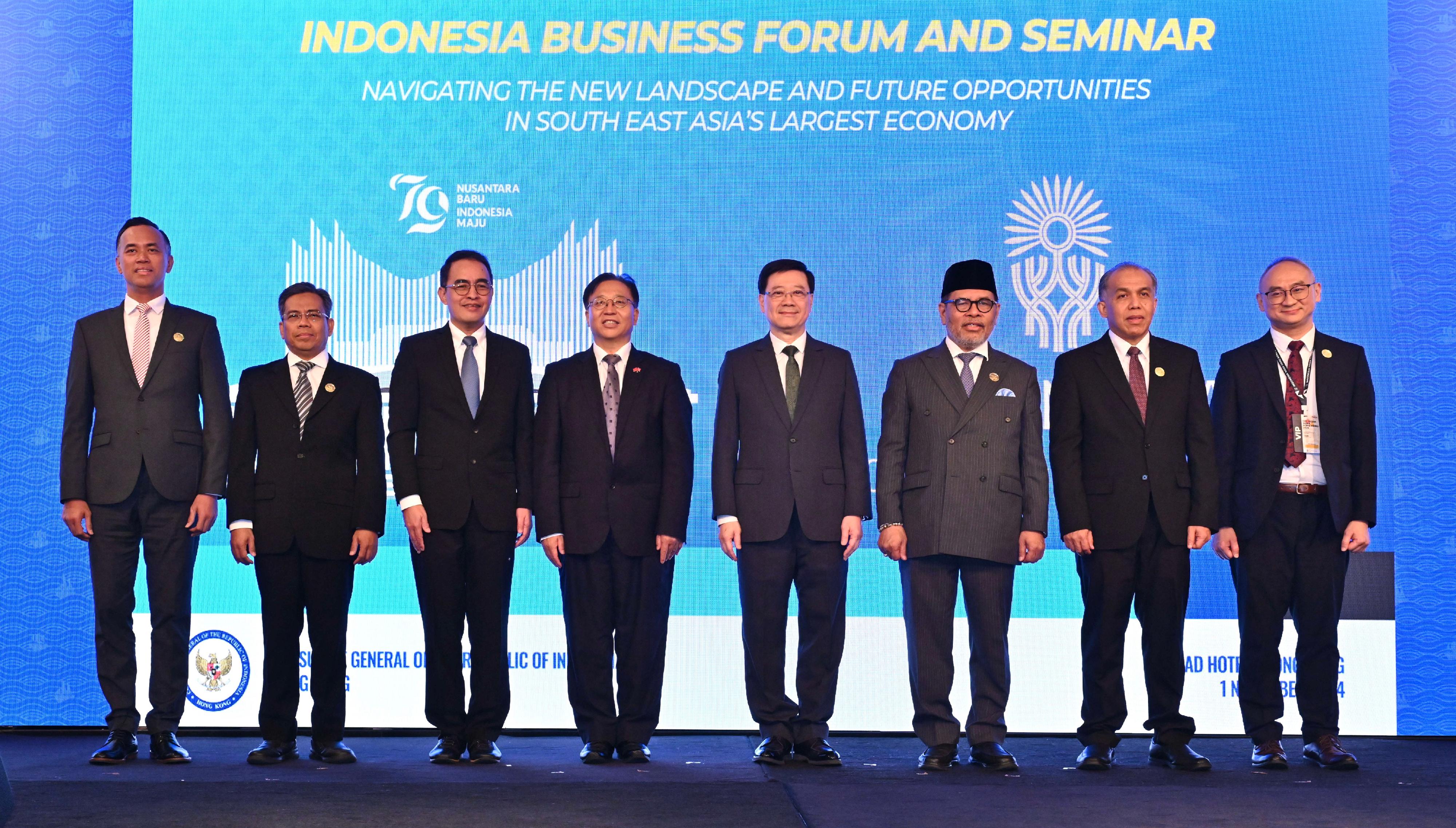
Chief Executive John Lee Ka-chiu has promised that the government of the Hong Kong Special Administrative Region will make expanding relations with Indonesia and the countries of Southeast Asia a top priority.
The chief executive was speaking at a trade and investment seminar hosted by the Consulate General of the Republic of Indonesia in Hong Kong on Friday. The seminar kickstarted Indonesia Week 2024 from Nov 1 to 3 which showcases the republic’s performing arts, fashion, food and music to Hong Kong audiences.
The forum was attended by a number of high-ranking dignitaries in the city, including Cui Jianchun, the commissioner of the Ministry of Foreign Affairs in the Hong Kong SAR.
Lee said the Hong Kong SAR government will strive to expand ties with Indonesia on all fronts.
ALSO READ: Chan: Strengths in financial services position HK as 2-way springboard
Regarding trade, the geographical coverage of E-commerce Easy under the Dedicated Fund on Branding, Upgrading and Domestic Sales will be expanded to ASEAN (Association of Southeast Asian Nations), and the government will promote the Hong Kong Shopping Festival to help companies tap into the ASEAN market.
“Hong Kong’s merchandise trade with Indonesia increased by over five percent year-on-year. Services trade between the two places rose by nearly 15 percent in 2022,” Lee said.
READ MORE: Officials urge strengthened SE Asia, Middle East ties with HK
The administration is also promoting people-to-people flows. Hong Kong SAR passport holders have been able to visit Indonesia visa-free since August; and Indonesian students are encouraged to make use of the additional scholarship opportunities offered for ASEAN students to study in Hong Kong. The government also provides self-service immigration clearance at all Hong Kong’s checkpoints specifically for ASEAN business and leisure travelers.

“I welcome Indonesian companies from to look to Hong Kong, as their rewarding way into the enormous Chinese mainland market, particularly the Guangdong-Hong Kong-Macao Greater Bay Area,” the chief executive added.
The chief executive reiterated that Hong Kong is fully prepared to join the Regional Comprehensive Economic Partnership (RCEP) and Hong Kong’s entry will boost the bilateral trade relations between Hong Kong and Indonesia that benefits companies and investors in the two places.
“I continue to count on Indonesia to appreciate the value that Hong Kong can add to the RCEP, and to speak up in support of our accession bid,” Lee emphasized.
READ MORE: Middle East, ASEAN to be growth engines for city’s aviation industry
Indonesian Ambassador to China Djauhari Oratmangun said the trade and investment relationship between Indonesia and Hong Kong is strong.
“Hong Kong now is the second-largest investor in Indonesia, hopefully soon to be number one. Investment and trade coming from Hong Kong is much larger than some countries in other regions,” Oratmangun said.
“In the last five years, Hong Kong has been one of the top three (sources) of foreign direct investment for Indonesia. In the third quarter of this year, Hong Kong superseded the Chinese mainland whereas the city has poured more than $6 billion realized FDI (foreign direct investment) into Indonesia,” the ambassador added.
READ MORE: ASEAN Film Festival fosters cultural connectivity
He emphasized that great potential remains open to Hong Kong investment especially if Hong Kong’s enterprises consider Indonesia as the entry point for Southeast Asia.
“Indonesia has long considered Hong Kong as our value partner in trade, investment and finance, with plenty of potential for us to explore even further. Indonesia is committed to create an even more constructive business environment through structural reforms and stronger regulatory transparency,” said Yul Edison, the Indonesian consul general in Hong Kong.
Juli Winantya, special advisor to the governor of Indonesia Central Bank, argued Indonesia has consistently been one of the most promising investment destinations due to the country’s consistent macroeconomic stability and solid economic performance, while pointing to the Indonesian government’s commitment to structural reforms and liberating rapid development in digital education to achieve strong, sustainable, balanced and inclusive growth.


